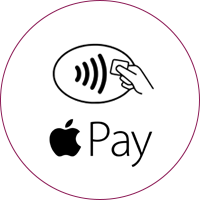Pelvic Pain – Overview
Pelvic pain can have a significant impact on daily life, and one of the most common causes is endometriosis. At Midlands Women’s Health, we specialise in the assessment and management of pelvic pain, offering advanced diagnostic tools and personalised treatment plans.
We are proud to offer Endosure® testing, a cutting-edge, non-invasive screening tool designed to support the early detection of endometriosis. In addition, our consultants provide expert MRI image review, ensuring that every scan is carefully evaluated to give you the clearest understanding of your condition and treatment options.
Pelvic pain can vary significantly. It may only affect a small area or the whole of the pelvis. Pain can include:
- A sharp, burning pain which goes away immediately.
- A gradual pain that does not go away.
- A dull or heavy ache or pressure
- A twisted or knotted feeling
- Cramping or throbbing pain which may come and go
- Pain only when doing something like exercise, sexual intercourse or urination.
There are lots of potential causes of pelvic pain, such as an infection or condition affecting the bladder or bowel. Most causes are not serious, but a few conditions do require emergency treatment, such as appendicitus and peritonitis. Please see a specialist if you are concerned. Other causes include:
- Constipation or irritable bowel syndrome (IBS)
- UTIs (Urinary Tract Infections)
- Sexually Transmitted Diseases (STIs)
Pelvic pain is more common for women and can be caused by more issues:
- Period Pain
- Conditions which effect female reproductive organs, i.e. ovarian cysts or endometriosis
- Pelvic pain during pregnancy
It can, rarely, be something more serious like an ectopic pregnancy, ovarian cancer or womb cancer.
Treatments for Pelvic Pain depend on the cause of the pain. These can include:
- Antibiotics
- Painkillers
- Physiotherapy
- Hormone Treatments
Other specialist treatments will be recommended to you by your specialist if necessary.
Your pelvic muscles can be strengthened with kegel exercises, helping to reduce the extent of your pelvic pain. To perform these exercises, tighten your pelvic muscles as if you are trying to hold back urine. Hold the muscles tight for a few seconds and then release. Repeat this 10 times. You can do this up to four times a day and these exercises can be done anywhere. For more information please click here.
Book your appointment today and experience expert care, when you need it
Book an Appointment
Use the form below to start the booking process
Our Charges
| Appointment | Cost |
| Consultant Gynaecologist – Initial Consultation | £230.00 |
| Consultant Gynaecologist – Remote Consultation | £100.00 |
| Consultant Gynaecologist – Initial Consultation & Pelvic Ultrasound Scan | £350.00 |
| Consultant Gynaecologist Follow-up Appointment | £150.00 |
| Polycystic Ovary Syndrome (PCOS) Screen with Consultant Gynaecologist | £600.00 |
| Endosure Test | £400.00 |
| Endosure Test and Consultation with Gynaecologist | £550.00 |
| MRI Endometrosis Review with Consultant Radiologist | £200.00 |
Can’t find the appointment you need?
Contact us today at 0121 368 9200 or email enquiries@midlandswomenshealth.co.uk.
Payment Options
At Midlands Women’s Health, we offer a variety of secure and convenient payment methods to make your experience as smooth as possible.
Payment Terms and Conditions
At Midlands Women’s Health, we aim to provide transparency and fairness in all aspects of your care, including payments. A £50 non-refundable deposit is required when booking your appointment. This deposit ensures your appointment is reserved and helps us manage our clinic availability efficiently. The final balance for your booked appointment will be issued and is payable 72 hours prior to your scheduled appointment date. We request payment prior to your appointment to effectively manage clinic utilisation effectively and optimisation of patient wait times.
Rescheduling
- If you need to reschedule and inform us at least 72 hours in advance, your £50 deposit will be transferred to your new appointment.
- For rescheduling requests within 72 hours of your appointment, the deposit will be retained as an administration fee, as short-notice changes limit our ability to offer the slot to other patients.
Cancellations
- Cancellations made 48 hours or more before your appointment will receive a refund of your payment minus the £50 non-refundable deposit, where final balance has been made.
- Cancellations made within 48 hours of your appointment will incur the full appointment fee, with no refund. This policy is in place because last-minute cancellations make it difficult to fill the appointment slot.
No-Shows
- If you do not attend your appointment without notice, no refund will be provided.
Refunds
- Refunds will be returned to your original payment method within 5-7 business days.
Additional Costs
Please note that additional costs may be incurred during your appointment, depending on the diagnosis and treatment options discussed with your Consultant. Any additional costs will be clearly explained and approved by you before proceeding, ensuring full transparency and consent.
We appreciate your understanding, as these policies allow us to provide reliable, high-quality care for all our patients. We look forward to welcoming you to Midlands Women’s Health.
Pelvic Pain – Specialists

Mr Yousri Afifi
PhD, MD, MRCOG
Consultant Gynaecologist & Endometriosis Specialist

Dr Moji Balogun
MBChB, MRCP, FRCR
Consultant Radiologist – Specialist in Gynaecological Imaging

Ms Pallavi Latthe
MD, FRCOG
Consultant Gynaecologist & Subspecialist in Urogynaecology

Dr Ruchira Singh
MBBS, MD, MRCOG
Consultant Gynaecologist – Clinical Director of Gynaecology at Birmingham Women’s Hospital
Working Hours
Have an emergency? Book your visit.
Mon – Sun: 08:00 – 20:00
Emergency Support
Have Any Questions? Let’s Talk!
We offer 24/7 support by email, you can call us free or you can book an appointment and our team will be happy to take care of you.






